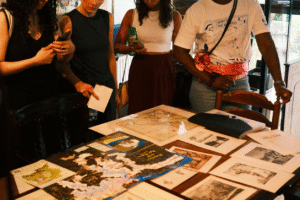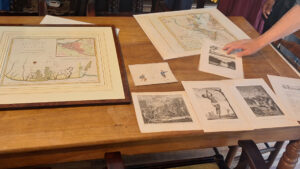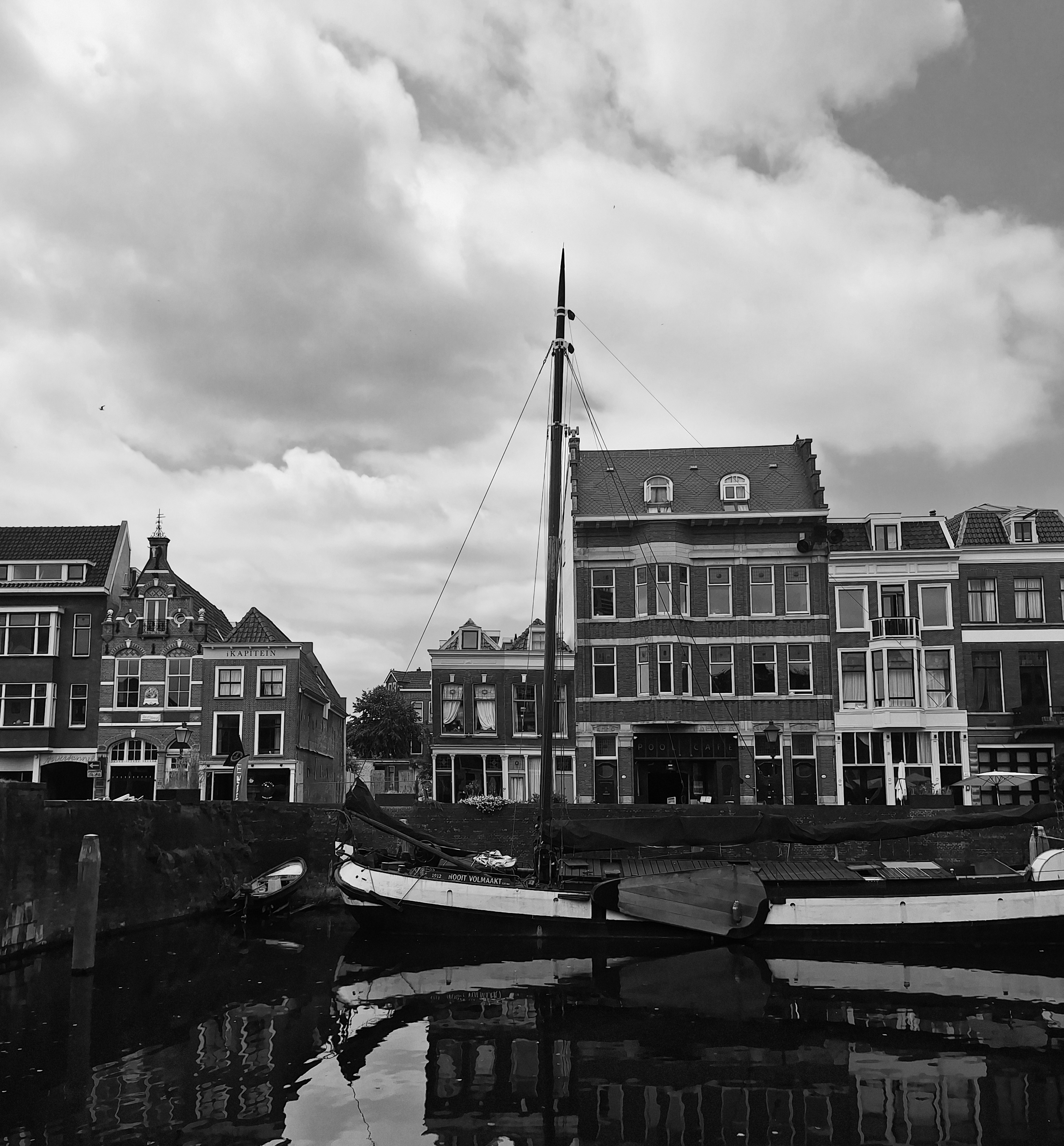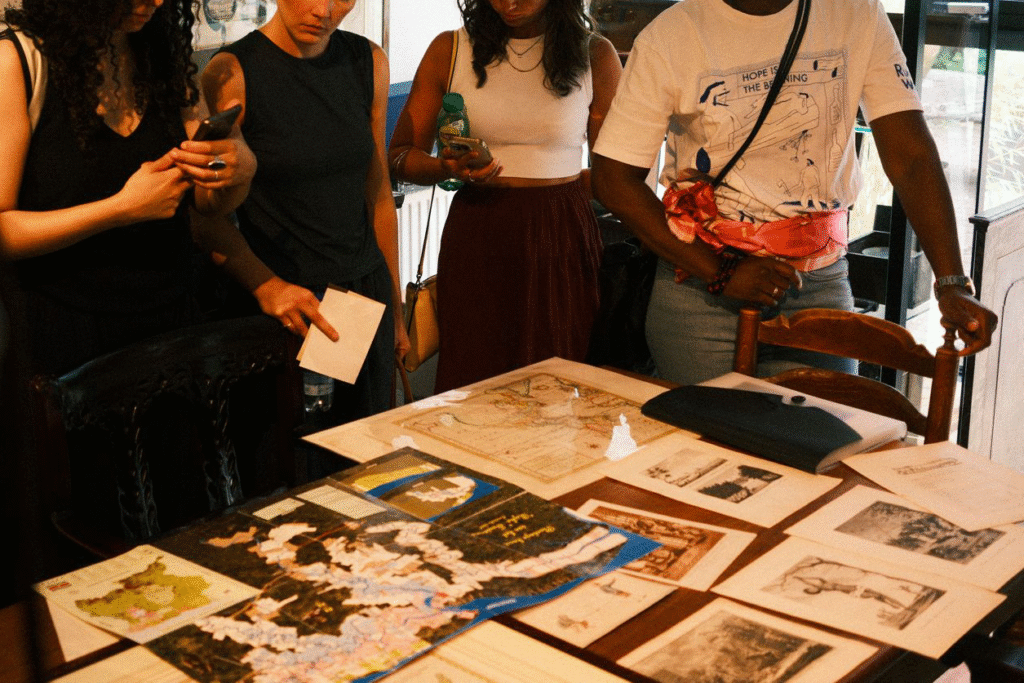Header image (c) Thomas Blanc De La Carrere, 2025
Trigger warning: this article contains topics of violence and discrimination
Five years ago when I arrived in the Netherlands, I didn’t know much about their history. Every country and history teacher has a bias towards their own centrism and Belgium is no exception to that rule. On July 1st 2021, I heard about Keti Koti for the first time.
Keti Koti is a commemoration day for all people whose ancestors have been enslaved. The emphasis of the day is on two of the Dutch former colonies: Suriname and the Dutch Antilles island group. The term Keti Koti is Surinamese (derived from the Sranantongo language) and literally translates to “broken chains”, referring to the unchaining of enslaved people when slavery was abolished.
According to records, this was in 1863. However, as a “repayment” of the losses that plantation owners would face, enslaved people in Suriname and the Dutch Antilles were forced to work for 10 more years. Up until today there is still debate on whether 1873 or 1863 should be the official date, with many descendants feeling wronged by the 1863 date. Many also believe, as do I, that Keti Koti should be a day free of labour. That on July 1st, no descendants of enslaved people should have to work. But so far the Dutch government hasn’t registered Keti Koti as an official national holiday. They did however officially apologise for slavery and the role that the Netherlands has played in the trans-atlantic slave trade and its repercussions, on national television. You can watch the apology here: https://www.youtube.com/watch?v=j-pX6tN1t7Y
In the first years of living in the Netherlands, I didn’t experience Keti Koti as a very visible commemoration. But from 2023 onwards, after learning more about it, I’ve made an active effort to be an ally and to discuss Keti Koti, slavery and its implications with people around me.
Rotterdam and specifically the borough of Delfshaven as I’ve come to learn, has many ties with slavery. Its strategic location close to the North Sea meant that it has a prime harbour location. During the period of colonization and beyond, a lot of sugar came through this harbour.
Sugar, as it turns out, has a very strong tie to slavery and Suriname. Before the industrialisation of sugar beet farming, which only took place in the late 19th century after the abolishment of slavery, all commercial sugar came from sugar cane. This crop grew richly in Suriname and during the trans-Atlantic slave trade, became one of the most highly produced crops in the plantations. Harvesting sugar cane was hard work that takes a great toll on the human body. Because of that, only the strongest slaves were sent to these plantations and it was used as a threat: “If you misbehave, you’ll get sent to Suriname.” our guide Annie Zinhagel told us. She’s the founder of SurinameOso, a Rotterdam‑based foundation that promotes Surinamese art, entrepreneurship, culture, education and tourism (KoCeT) to strengthen ties and foster mutual understanding between Suriname and the Netherlands. She stops in front of a square that once was a sugar factory. Sugar cane had to be cut with machetes, mauled and heated into “sugar loaves” before being able to be transported to the Netherlands. The physical labour and unsafe work conditions would often leave enslaved people with permanent physical disabilities. Men would be burned to death and women would get tortured for small mistakes or disobedience. The cruelty with which enslaved people were treated is truly unfathomable to me.
As we walked, I saw the disgust in the eyes of my Surinamese colleagues. It’s their great-grandparents who’ve had to endure this extreme brutality. Some feel anger, others sadness. Slavery is a generational trauma that didn’t just disappear after the abolishment and there are still repercussions that descendants of enslaved people face. From having less opportunities and facing racism to having last names that are directly tied to plantations and slave owners. They can’t research genealogy reports, because they don’t know where their ancestors came from. They were taken from their homes, brought to the other side of the world and forced into labour. Colonialism and slavery are inextricably linked into their DNA and they have to carry this burden.
I feel like people who aren’t directly confronted with this history often don’t understand the pain that this gives descendants of enslaved people. To them, slavery happened a long time ago and they don’t understand why it keeps being brought up. Annie mentioned during her tour that descendants of enslaved people often avoid conflict and when confronted, will not look the other in the eye. I recognize this behaviour from former students I taught. If they were naughty and got caught, they wouldn’t dare to make eye contact with me when they were being corrected. Annie said that this is often misinterpreted as students being cocky, whilst in reality they are afraid. It gave me a lightbulb moment, because it allowed me to see the behaviour of my former students in a more nuanced and truthful way. It’s a lesson I take with me in my educational career. Some years ago, I saw a beautiful documentary about the Black Lives Matter movement and reclaiming lost heritage. It’s in Dutch and is called “Ga terug en haal het”, and I would definitely recommend watching it. https://www.npodoc.nl/documentaires/2022/11/ga-terug-en-haal-het.html
Keti Koti is a remembrance that I find very important. Slavery is a thing of only the recent past* and we need to show empathy and respect towards descendants of enslaved people, and actively educate ourselves on the subject. So much is forgotten, swept under the carpet or dismissed. I also find it extremely important to listen to black voices and voices of descendants of enslaved people specifically on themes that involve their ancestors. Information written about the history of slavery in Delfshaven in this blog post was provided during a tour hosted by Annie Zinhagel and her organisation SurinameOso. If you are Rotterdam-based, definitely check them out and if your finances allow, do consider booking a tour with them. https://www.surinameoso.com/
Though I am white and I will never be able to grasp the full experience and hurt that my black colleagues, friends, family and fellow humans experience, I can support them by being an ally and using my voice to start conversations about discrimination, impact and inclusion.



*technically; slavery is not even a thing of the past but is still very much going on around the world. Including countries like Belgium, Brazil and Saudi-Arabia. With this statement, I’m referring to the abolition of the trans-atlantic slave trade.

